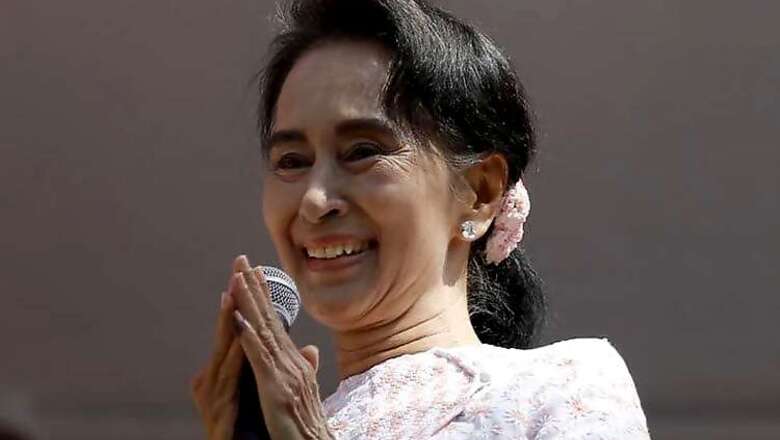
views
Naypyitaw: Nobel laureate Aung San Suu Kyi's decades-long battle to bring democracy to Myanmar is likely to come to fruition tomorow with a whimper, not a bang.
Despite leading her party to a smashing election victory in 2015, she seems certain not to become her country's leader.
After years of struggle and sacrifice by Suu Kyi and her legions of followers, it will be as much an anticlimax as a historical watershed when her National League for Democracy party takes over the reins of government April 1 from the military-backed party that's been in power since 2011.
In practical terms, the new president will become known on Thursday, when the upper and lower houses of parliament and the military bloc that holds a constitutionally mandated 25 per cent of seats will nominate their presidential candidates. But until those nominations, virtually no one outside of Suu Kyi's inner circle knows who will be the country's next leader.
The new president is virtually certain to be from Suu Kyi's party, since it holds majorities in both chambers of parliament, giving it not only the right to make two nominations but the numbers to pick the winner. The two runners-up become the country's vice presidents.
But Suu Kyi, 70, cannot be president because the constitution bars anyone with a foreign spouse or children from holding the executive office. Suu Kyi's two sons are British, as was her late husband.
No problem, Suu Kyi said after her party's massive election victory in November assured her followers that she would be the one pulling the strings in the new government.
The 1991 Nobel Peace Prize winner explained what she meant in an interview with the BBC two days after the election. "Well, I'll make all the decisions, it's as simple as all that," she said, dismissing constitutional requirements as a technicality "that won't stop me from making all the decisions as the leader of the winning party."
Elaborating that same day with Singapore's Channel NewsAsia, she seemed even more dismissive of political etiquette, saying that the president picked by her party would "have to understand this perfectly well, that he will have no authority. That he will act in accordance with the positions of the party."
A surprised interviewer asked whether the smooth functioning of government might be handicapped by having a president without power.
"Why should it affect the functions of the government?" Suu Kyi replied. "Because there will be a government, it will be run properly, the president will be told exactly what he can do."
In recent months, Suu Kyi's National League for Democracy party, or NLD, made an effort to obviate the need for a proxy president, floating the idea that the constitutional article barring her from the top slot could be suspended.




















Comments
0 comment